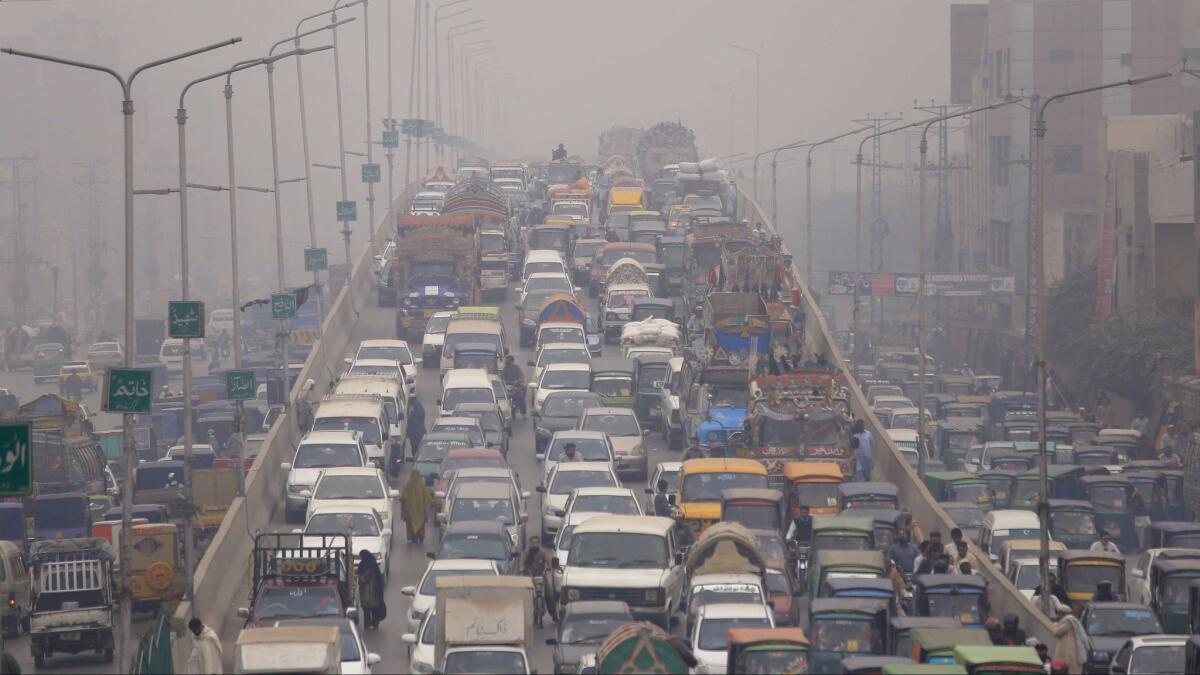Introduction
Peshawar, the vibrant capital of Khyber Pakhtunkhwa province in Pakistan, is grappling with a grave concern – pollution. The air quality index (AQI) in this bustling city has reached alarming levels, posing significant risks to public health and the environment. In this article, we delve deep into the causes, consequences, and potential solutions to address the escalating pollution crisis in Peshawar.
Causes
Major Causes of Pollution in Peshawar
Pollution in Peshawar stems from various sources, including industrial emissions, vehicular exhaust, agricultural practices, and rapid urbanization. These factors contribute to the deterioration of air quality and pose serious health hazards to the city’s residents.
Industrial Pollution
Industries operating in and around Peshawar release harmful pollutants into the atmosphere, such as sulfur dioxide (SO2), nitrogen oxides (NOx), and particulate matter (PM). These emissions not only degrade air quality but also contaminate soil and water bodies, adversely affecting both human health and the ecosystem.
Vehicular Emissions
The exponential growth in the number of vehicles on Peshawar’s roads has led to a significant increase in air pollution. Exhaust emissions from cars, trucks, and motorcycles release pollutants like carbon monoxide (CO), hydrocarbons (HC), and nitrogen dioxide (NO2), further exacerbating the city’s pollution woes.
Agricultural Practices
Agricultural activities, including burning crop residues and the use of chemical fertilizers and pesticides, contribute to air and water pollution in Peshawar. The burning of crop stubble releases harmful gases and particulate matter into the air, leading to respiratory issues and environmental degradation.
Urbanization
Rapid urbanization and unplanned development have intensified pollution levels in Peshawar. The proliferation of construction projects, inadequate waste management systems, and deforestation have all contributed to the deterioration of air quality and the loss of green spaces in the city.
Health Risks
Health Hazards Associated with Pollution
The deteriorating air quality in Peshawar poses significant health risks to its residents. Exposure to pollutants such as PM2.5, sulfur dioxide, and ozone can cause respiratory illnesses, cardiovascular diseases, and exacerbate existing health conditions. Children, the elderly, and individuals with pre-existing health issues are particularly vulnerable to the adverse effects of pollution.
Air Quality
Understanding Pollution Measurement
The pollution levels in Peshawar are measured using the air quality index (AQI), which provides an indicator of the overall air quality based on the concentration of pollutants present in the atmosphere. The AQI scale ranges from 0 to 500, with higher values indicating poorer air quality and increased health risks.
Morning Data
In the morning hours, pollution levels in Peshawar soar to alarming levels, with AQI readings often exceeding 180. The combination of vehicular emissions, industrial activities, and stagnant air exacerbates pollution during this time, posing serious health risks to residents going about their daily routines.
Evening Data
Evening brings little relief from the pollution woes, as AQI readings remain high, averaging around 120. The decline in vehicular traffic does little to mitigate pollution levels, as industrial emissions and other sources continue to contribute to poor air quality well into the night.
Government Efforts
Initiatives to Tackle Pollution in Peshawar
The government of Pakistan, in collaboration with local authorities and environmental agencies, has initiated several measures to address pollution in Peshawar. These include implementing stricter emission standards for industries, promoting cleaner transportation options, and investing in renewable energy sources to reduce reliance on fossil fuels.
Community Role
How Individuals Can Combat Pollution
While government efforts are crucial, individuals also play a significant role in combating pollution in Peshawar. Simple actions such as carpooling, using public transportation, conserving energy, and planting trees can collectively make a difference in improving air quality and reducing pollution levels in the city.
Future Outlook
Prospects for Reducing Pollution in Peshawar
Despite the challenges posed by pollution, there is hope for a cleaner and healthier future in Peshawar. By adopting sustainable practices, embracing clean technologies, and fostering a collective commitment to environmental stewardship, the city can mitigate pollution and pave the way for a brighter tomorrow.
Conclusion
In conclusion, pollution in Peshawar is a pressing issue that demands immediate attention and concerted efforts from all stakeholders. By addressing the root causes of pollution, implementing effective regulations, and fostering community engagement, we can strive towards a cleaner, greener, and healthier Peshawar for generations to come.
FAQs
- What are the main sources of pollution in Peshawar? The main sources of pollution in Peshawar include industrial emissions, vehicular exhaust, agricultural practices, and rapid urbanization.
- How does pollution affect public health in Peshawar? Pollution in Peshawar can lead to respiratory illnesses, cardiovascular diseases, and exacerbate existing health conditions, particularly among vulnerable populations such as children and the elderly.
- What is the government doing to tackle pollution in Peshawar? The government of Pakistan has initiated various measures to address pollution in Peshawar, including implementing stricter emission standards, promoting cleaner transportation options, and investing in renewable energy sources.
- How can individuals contribute to reducing pollution in Peshawar? Individuals can contribute to reducing pollution in Peshawar by adopting eco-friendly practices such as carpooling, using public transportation, conserving energy, and planting trees.
- What is the future outlook for pollution in Peshawar? Despite the challenges, there is hope for a cleaner future in Peshawar through collective efforts to mitigate pollution and promote sustainable development.
